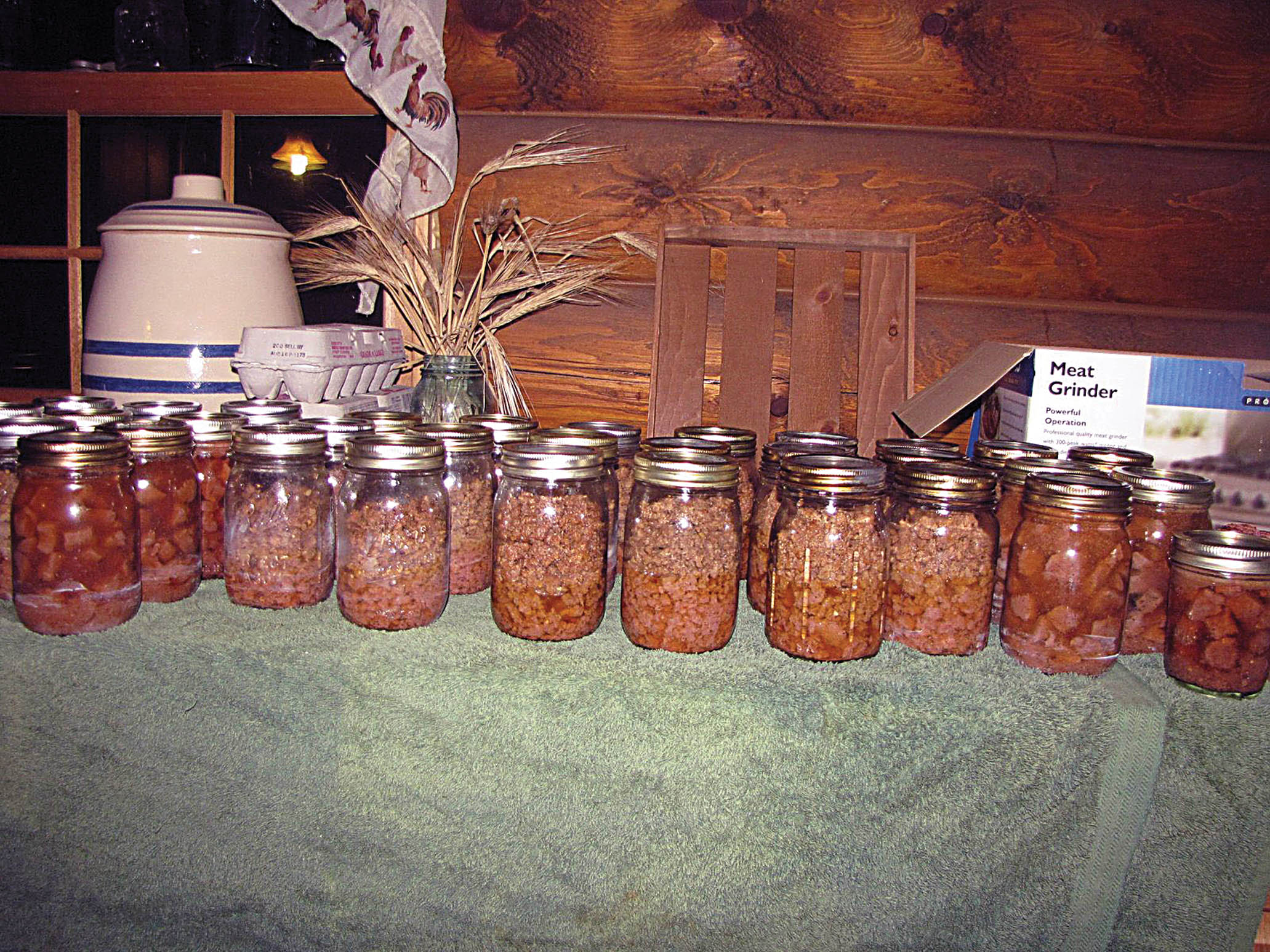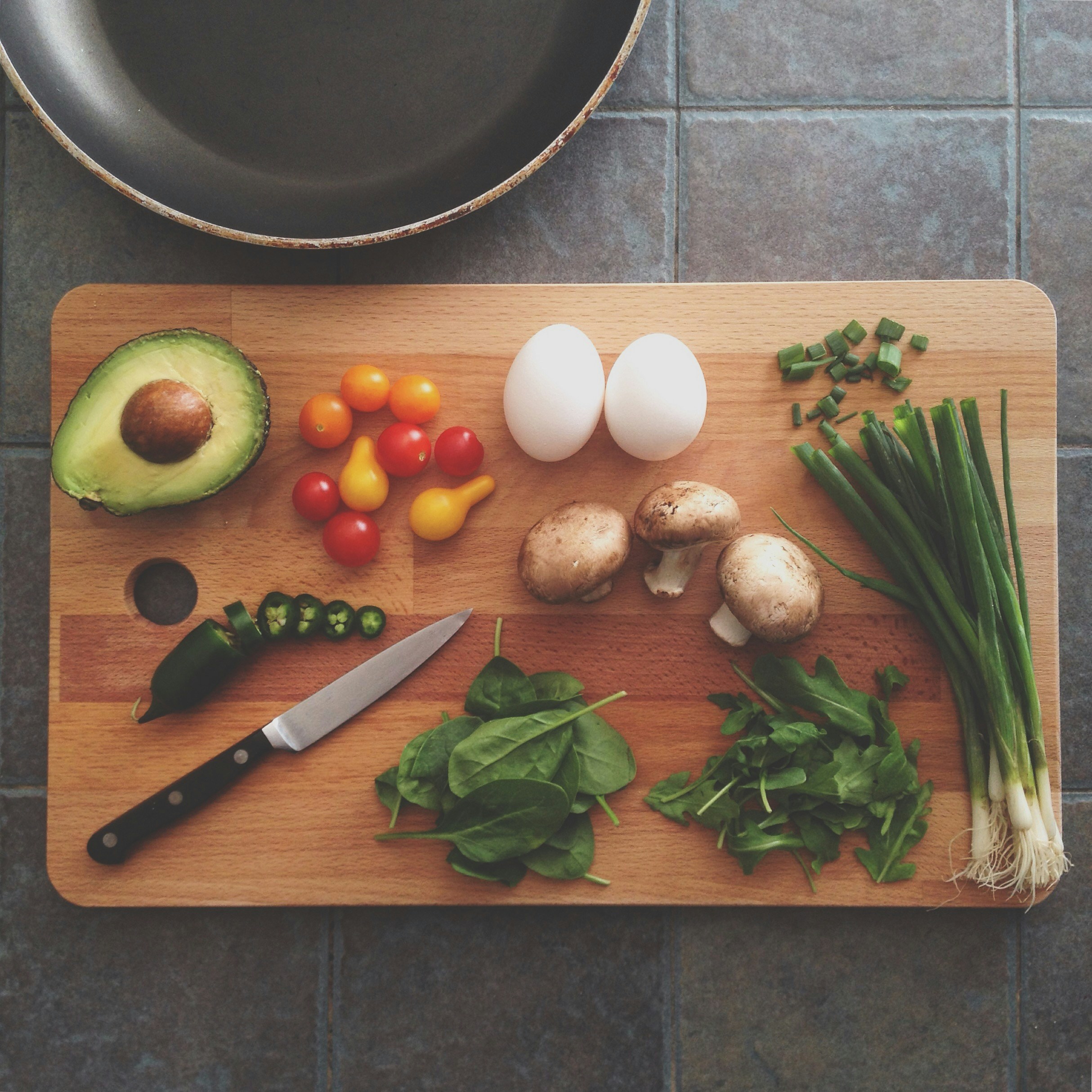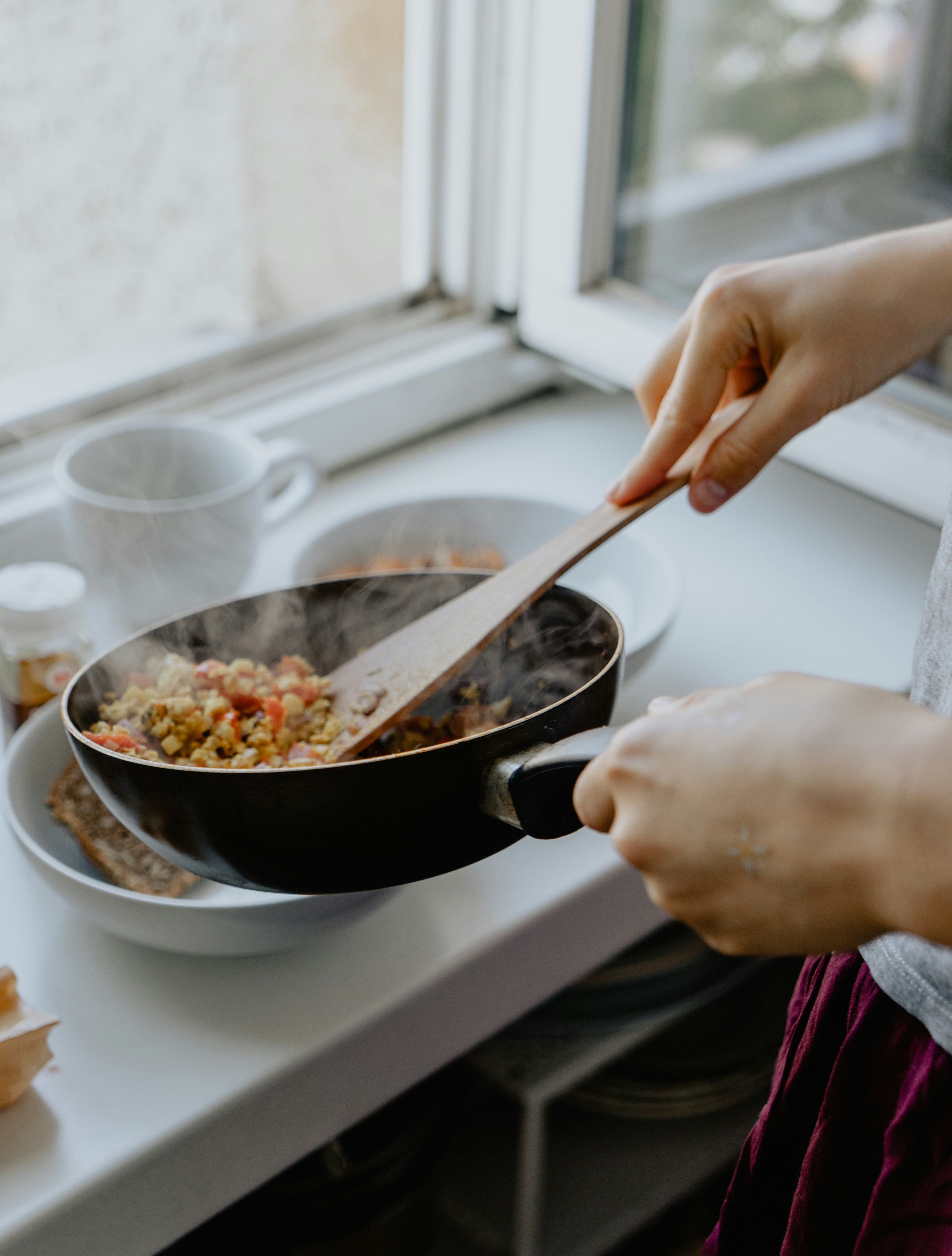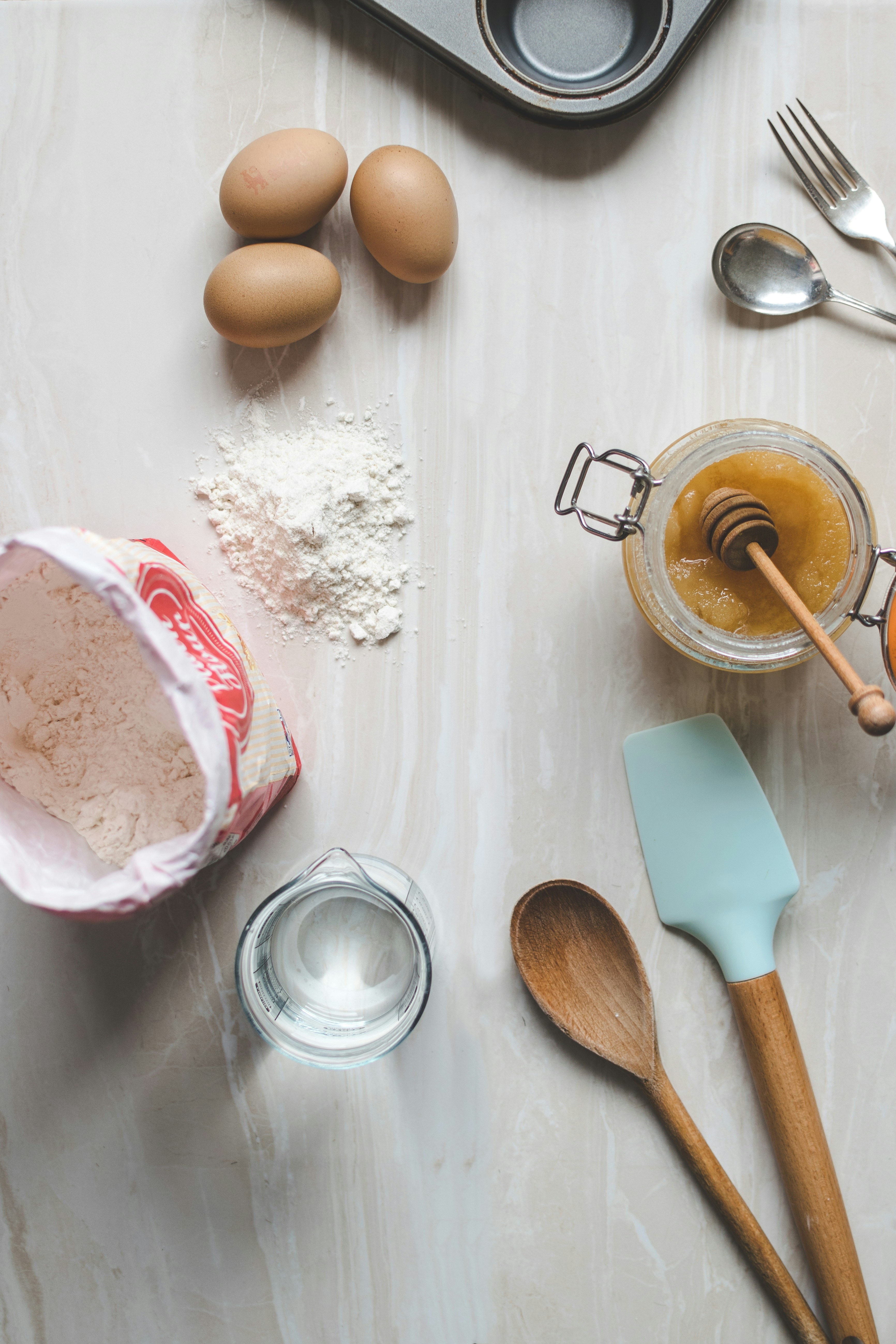These 4 Quality Pressure Canners are Popular Among Users Looking for a pressure cooker or canner? Check out these 4 top-rated products on Amazon! Perfect for all your cooking and canning needs.
Hey there! Are you in the market for a pressure cooker or canner, but feeling a little overwhelmed with all the options out there? Don't worry, we've got you covered! In this review, we'll be taking a closer look at four top-rated products to help you make an informed decision. Whether you're a seasoned chef or a beginner in the kitchen, these versatile and time-saving appliances are a must-have for anyone who loves to cook.
Pressure cookers and canners have a long history, dating back to the early 17th century when a French physicist invented a steam-powered cooking device. Over the years, these products have evolved and become more advanced, allowing for faster cooking times and safe food preservation. The benefits of owning a pressure cooker or canner are endless. Firstly, they save you time in the kitchen by significantly reducing cooking times. Secondly, they help retain the nutritional value of your food by using less water and shorter cooking times. Lastly, they're perfect for canning sauces, vegetables, fruits, and meats, allowing you to enjoy your favorite homemade goodies all year round.
Now, let's dive into the specifics of each product. We'll start with the T-fal Pressure Cooker Aluminum Pressure Canner, a 22-quart beauty. With three PSI settings, it gives you the flexibility to cook a variety of recipes. The silver finish adds a touch of elegance, and the large capacity is perfect for batch cooking or canning. It also comes with cooling racks, a recipe booklet, and all the necessary tools to make your canning experience a success.
Next up is the Presto 01781 Pressure Canner and Cooker, boasting a whopping 23-quart capacity. Its sleek silver design adds a modern touch to your kitchen, and the heavy-duty aluminum construction ensures durability. This appliance is designed for use on regular or smooth-top ranges and features an easy-to-read dial gauge for accurate pressure control. Talk about convenience!
If you're looking for something specifically induction compatible, the Presto 01784 23-Quart Induction Compatible Pressure Canner might be the perfect choice for you. The silver aluminum build is not only durable but also provides even heat distribution for perfectly cooked meals. This canner is designed to work with induction ranges, making it an excellent option for those with this type of cooktop.
Lastly, we have the Orange Door Products 24 Quart Pressure Canner Kit. This induction compatible set includes eight essential canning tools, such as tongs, a funnel, a rack, and a jar lifter. The 24-quart capacity allows for ample food preservation, and the attractive silver finish adds style to your kitchen.
So there you have it! A quick overview of four fantastic pressure cookers and canners. Ready to take your cooking game to the next level? Keep reading to discover more about these products and find the one that suits your needs best.
T-fal 22 Qt Pressure Cooker Aluminum Canner with 3 PSI Settings and Recipe Booklet, for Cooking Large Quantities of Vegetables, Meats, Poultry, and Seafood
This image is property of Amazon.com.
The T-fal Pressure Cooker Aluminum Pressure Canner is primarily used for home canning, allowing you to preserve and store various types of food such as meat, vegetables, seafood, and produce. It is the only USDA-recommended method for canning, ensuring that your food remains fresh for a longer period of time.
There are several reasons why we like the T-fal Pressure Cooker Aluminum Pressure Canner. First and foremost, its durable aluminum construction ensures a long-lasting and reliable performance. The canner provides even heating, resulting in perfectly cooked food every time. Additionally, the easy maintenance of this product makes it extremely convenient to use and clean.
The T-fal Pressure Cooker Aluminum Pressure Canner is specifically designed to meet the needs of home canners. Its key purpose is to provide a safe and efficient method for preserving large batches of seasonal produce, ensuring that you can enjoy the freshness of your homegrown fruits and vegetables all year round.
This pressure canner offers a generous 22-quart capacity, allowing you to can large quantities of food in one go. It comes with two cooking racks, maximizing the canning space available, and a recipe booklet complete with charts and pressure cooker recipes to enhance your home canning experience.
When it comes to overall quality, the T-fal Pressure Cooker Aluminum Pressure Canner truly stands out. Its durable aluminum construction ensures that it can withstand regular use without any signs of wear and tear. The canner provides even heating, which is crucial for achieving perfectly cooked food. Its secure locking mechanism, steam release valve, and gauge further enhance its safety features, ensuring that you can use it with confidence.
- Durable aluminum construction for long-lasting performance
- Even heating for perfectly cooked food
- Easy maintenance for convenient use and cleaning
- Secure locking mechanism, steam release valve, and gauge for added safety
- 22-quart capacity and two cooking racks for preserving large batches of seasonal produce
- Recipe booklet included for enhanced canning experience
- Fast cooking, reducing cooking times by up to 70%
Presto Pressure Canner and Cooker, 23 quarts, Silver
This image is property of Amazon.com.
If you are looking for a reliable pressure canner and cooker that can handle large capacities, then the Presto 01781 Pressure Canner and Cooker is the perfect choice for you. This versatile kitchen appliance can be used for canning vegetables, meats, poultry, and seafood, making it an essential tool for any home canning enthusiast. Additionally, it can also function as a boiling-water canner for preserving fruits, jams, jellies, pickles, and salsa. With its impressive 23-quart capacity, you can tackle those big canning jobs effortlessly.
One of the main reasons why we love the Presto 01781 Pressure Canner and Cooker is its exceptional performance. Constructed from warp-resistant heavy-gauge aluminum, this pressure canner and cooker ensures fast and even heating, resulting in perfectly cooked food every time. Whether you are canning or cooking, you can trust this appliance to provide consistent results.
The Presto 01781 Pressure Canner and Cooker is designed to make your canning and cooking experience easier and more efficient. It is the only method recommended safe by the US Department of Agriculture for canning vegetables, meats, poultry, and seafood. The high-quality construction of this pressure canner and cooker allows it to work on regular and smooth-top ranges, providing versatility in the kitchen.
One of the standout features of the Presto 01781 Pressure Canner and Cooker is its deluxe pressure dial gauge. This gauge registers the complete range of processing pressures, ensuring that your food is cooked at the optimal pressure for safety and quality. This feature is especially important for those living at higher altitudes, where slight pressure adjustments are necessary.
When it comes to quality, the Presto 01781 Pressure Canner and Cooker does not disappoint. Its heavy-gauge aluminum construction not only ensures durability but also allows for quick and even heating, preventing any hot spots that could potentially affect the quality of your food. The extended 12-year limited warranty further reflects the confidence that the manufacturer has in the product's reliability and longevity.
-
Large capacity, perfect for big canning jobs
-
Versatile, can be used as a pressure canner and cooker or a boiling-water canner
-
Warp-resistant heavy-gauge aluminum construction ensures even heating
-
Deluxe pressure dial gauge for precise measurement, crucial for high-altitude canning
-
Comes with a canning/cooking rack and a comprehensive 76-page instruction and recipe book
-
Extended 12-year limited warranty for peace of mind
-
The large size of the Presto 01781 Pressure Canner and Cooker may not be suitable for those with limited storage space
-
Some users may find the pressure canner and cooker to be on the heavier side, especially when filled to its maximum capacity
The Presto 01781 Pressure Canner and Cooker is a popular choice among users for its excellent performance and reliability. Whether you are new to canning or a seasoned pro, this kitchen appliance will make your canning and cooking endeavors a breeze. With its large capacity, versatile functionality, and impressive construction, the Presto 01781 Pressure Canner and Cooker is a must-have for any home canning enthusiast.
Presto 23-Quart Induction Pressure Canner, Silver, Aluminum
This image is property of Amazon.com.
The Presto 01784 23-Quart Induction Compatible Pressure Canner is designed for home canning, offering you an easy and confident way to preserve vegetables, meats, poultry, and seafood. This pressure canner can also double as a boiling water canner for fruits, jams, jellies, pickles, and salsa.
We are big fans of the Presto 01784 23-Quart Induction Compatible Pressure Canner for several reasons. One of the standout features of this pressure canner is its induction compatibility. This means that it can be used on a variety of stovetops, including gas, electric, smooth-top, and induction ranges. This versatility makes it a great option for any kitchen setup.
Another reason we love this product is its extra-large 23-quart capacity. This is perfect for those who like to can in bulk or have a large family to feed. With this size, you can easily prepare large batches of canned goods, saving you time and effort in the long run.
Additionally, the Presto 01784 is made with heavy-gauge aluminum with an induction-compatible stainless steel-clad base. This combination of materials ensures even heat distribution and sturdy construction, making it a durable and reliable pressure canner.
The primary purpose of the Presto 01784 23-quart Induction Compatible Pressure Canner is to provide a safe and efficient method for home pressure canning. It follows the guidelines set by the USDA, which recommends pressure canning as the only safe method for canning vegetables, meats, poultry, and seafood.
Key features of this pressure canner include its induction compatibility, extra-large capacity, and durable construction. These features make it a versatile and reliable tool for any home canning enthusiast. Additionally, it can also be used as a boiling water canner for fruits, jams, jellies, pickles, and salsa, adding to its functionality in the kitchen.
The Presto 01784 23-Quart Induction Compatible Pressure Canner is of excellent quality. Its heavy-gauge aluminum and induction-compatible stainless steel-clad base ensure durability and long-lasting performance. The extra-large capacity is perfect for those who need to can large quantities, and the induction compatibility allows for convenient use on various stovetops.
This pressure canner has received positive reviews from users, praising its efficiency, ease of use, and reliable results. Many users appreciate the fact that it is made in the USA, which adds to their confidence in its quality and safety.
Pros:
- Induction compatible, making it suitable for different stovetops
- Extra-large 23-quart capacity for canning in bulk
- Made with heavy-gauge aluminum for even heat distribution
- Doubles as a boiling water canner for additional canning needs
- Made in the USA, ensuring quality and safety standards
Cons:
- The large size may not be suitable for those with limited storage space
- Some users found the canning instructions provided to be unclear or insufficient, requiring additional research or guidance
The Presto 01784 23-Quart Induction Compatible Pressure Canner is a popular choice among users for its versatility, extra-large capacity, and overall quality. Whether you are an experienced home canner or just starting out, this pressure canner offers a reliable and efficient way to preserve your favorite fruits, vegetables, meats, and more.
24 Quart Pressure Canner Kit | Induction Compatible 8pc Canning Starter Set with Tongs, Funnel, Rack, Jar Lifter & More by Orange Door Products
This image is property of Amazon.com.
The Orange Door Products 24 Quart Pressure Canner Kit is primarily used for efficient and safe canning of various foods including meat, poultry, seafood, veggies, fruits, and more. It is suitable for both beginners and experienced canners.
We are big fans of the Orange Door Products 24-Quart Pressure Canner Kit for several reasons. Firstly, it offers more space and less hassle, allowing you to maximize your time and streamline your canning process. With its large capacity, you can slash cooking times, lock in flavor, and preserve nutrients, making meal prep efficient and nutritious.
Additionally, this canner kit is perfect for both beginners and pros. It comes with all the necessary tools you need, including a canning rack, lifter tongs, funnel, magnetic jar lid lifter, bubble popper, jar wrench, scissor tongs, and an instruction booklet. The easy-to-follow instructions make it user-friendly and ensure successful canning every time.
The Orange Door Products 24-Quart Pressure Canner Kit is designed to simplify the canning process and make it safer and more convenient. Its key features include a built-in spring safety device and a sure-locking lid system, ensuring that you can cook with confidence. The pressure canner not only locks in flavor but also locks in safety.
This kit is built to last, thanks to its durable design and high-quality materials. It guarantees efficient canning each and every time you use it. The 24-quart capacity provides ample space for your canning needs, allowing you to preserve large quantities of food at once.
The overall quality of the Orange Door Products 24-Quart Pressure Canner Kit is exceptional. It is evident that the manufacturer has prioritized durability, safety, and user-friendliness in its design. The canner is constructed with high-quality materials that ensure long-lasting performance.
The pressure canner's built-in spring safety device and sure-locking lid system provide peace of mind while cooking. You can trust that your food will be safely preserved without any unexpected lid pop-offs. This emphasis on safety sets the Orange Door Products 24-Quart Pressure Canner Kit apart from other options on the market.
-
Large capacity for efficient meal prep
-
Locks in flavor and preserves nutrients
-
Suitable for beginners and experienced canners
-
Includes all necessary tools and an instruction booklet
-
Built-in spring safety device and sure-locking lid system for added safety
-
May be too large for individuals with limited storage space
-
Some users may find the kit to be a bit pricey compared to other options available
The Orange Door Products 24-Quart Pressure Canner Kit is a popular choice among users for its efficiency, safety features, and overall quality. Whether you are new to canning or an experienced canner, this kit has everything you need to preserve a variety of foods. Its large capacity allows for time-saving meal prep, while the built-in safety features provide peace of mind. While it may be on the pricier side, the durability and convenience it offers make it a worthwhile investment for avid canners.
Comparison of T-fal Pressure Cooker Aluminum Pressure Canner, Presto 01781 Pressure Canner and Cooker, Presto 01784 23-Quart Induction Compatible Pressure Canner, and Orange Door Products 24 Quart Pressure Canner Kit
T-fal Pressure Cooker Aluminum Pressure Canner, 22 Quart
- Durable Aluminum Construction: Provides long-lasting performance, even heating, and easy maintenance.
- Versatile cooking: Recommended method for canning meat, vegetables, seafood, and produce. Can also be used for steaming, boiling, and simmering.
- Safety features: Secure locking mechanism, steam release valve, and pressure gauge to monitor pressure.
- Extra-Large Size: 22-quart capacity, perfect for preserving large batches of seasonal produce.
- Fast Cooking: Reduces cooking times up to 70 percent compared to conventional cooking.
- Compatibility: Suitable for all cooktops except induction.
- Warranty: Backed with a one-year warranty.
Presto 01781 Pressure Canner and Cooker, 23 qt
- Durable Aluminum Construction: Warp-resistant heavy-gauge aluminum for fast and even heating.
- Versatile cooking: Recommended for canning vegetables, meats, poultry, and seafood. Can also be used as a boiling-water canner for preserving fruits, jams, jellies, pickles, and salsa.
- Extended Warranty: Comes with an extended 12-year limited warranty.
- Pressure Gauge: Deluxe pressure dial gauge registers the complete range of processing pressures.
- Extra-Large Size: 23-quart capacity for big canning jobs.
- Includes: Canning/cooking rack and complete 76-page instruction and recipe book.
Presto 01784 23-Quart Induction Compatible Pressure Canner
- Induction Compatible: Works on gas, electric, smooth-top, and induction ranges.
- Durable Construction: Heavy-gauge aluminum with an induction-compatible stainless steel-clad base.
- Versatile cooking: Recommended for canning vegetables, meats, poultry, and seafood. Can also be used as a boiling-water canner.
- Extra-Large Size: 23-quart capacity.
- Safety: Ensures easy and confident home pressure canning.
Orange Door Products 24 Quart Pressure Canner Kit
- More Space, Less Hassle: Maximize cooking time with a large canner. Reduces cooking times, lock-in flavor, and preserves nutrients.
- Great for Beginners and Pros: Includes all necessary tools and easy-to-follow instructions.
- Safety First: Built-in spring safety device and sure-locking lid system for cooking with confidence.
- Built to Last: Durable design and high-quality materials ensure efficient canning.
- Recommended Method: The only USDA-recommended way to safely preserve meat, poultry, seafood, veggies, fruits, and more.
- Includes: Pressure canner, canning rack, lifter tongs, funnel, magnetic jar lid lifter, bubble popper, jar wrench, scissor tongs, and instruction booklet.
Comparison Table
| Feature | T-fal | Presto 01781 | Presto 01784 | Orange Door Products |
|---|---|---|---|---|
| Material | Aluminum | Aluminum | Aluminum with Stainless Steel-clad base | N/A |
| Versatile Cooking | Yes | Yes | Yes | Yes |
| Recommended for Canning Meat, Vegetables, Seafood, etc. | Yes | Yes | Yes | Yes |
| Induction Compatible | No | No | Yes | N/A |
| Size | 22 Quart | 23 Quart | 23 Quart | 24 Quart |
| Safety Features | Secure locking mechanism, steam release valve, pressure gauge | Deluxe pressure dial gauge | N/A | Built-in spring safety device, sure-locking lid system |
| Warranty | 1 year | 12-year limited | N/A | N/A |
| Included Accessories | 2 cooking racks, recipe booklet | Canning/cooking rack, instruction and recipe book | N/A | Canning rack, lifter tongs, funnel, magnetic jar lid lifter, bubble popper, jar wrench, scissor tongs, instruction booklet |
Conclusion
After reviewing the T-fal Pressure Cooker Aluminum Pressure Canner, Presto 01781 Pressure Canner and Cooker, Presto 01784 23-Quart Induction Compatible Pressure Canner, and Orange Door Products 24 Quart Pressure Canner Kit, it is clear that each product offers features that make them suitable for different needs.
T-fal Pressure Cooker Aluminum Pressure Canner:
The T-fal Pressure Cooker Aluminum Pressure Canner offers a large capacity of 22 quarts, making it ideal for canning vegetables, meats, poultry, and seafood. With three PSI settings, it allows you to customize the pressure according to your recipe. It also comes with cooling racks and a recipe booklet, providing convenience and guidance. However, the silver color might not be everyone's preference.
Presto 01781 Pressure Canner and Cooker:
The Presto 01781 Pressure Canner and Cooker is a 23-quart silver unit that is suitable for canning a variety of foods. It offers a large capacity and comes with a dial gauge for precise pressure control. The silver color and sturdy build make it a durable choice, but keep in mind that it does not support induction cooktops.
Presto 01784 23-Quart Induction Compatible Pressure Canner:
The Presto 01784 23-Quart Induction Compatible Pressure Canner is a silver and aluminum unit that supports induction cooktops, making it a versatile option. It shares many features with the Presto 01781, including a 23-quart capacity and a dial gauge. However, it comes at a higher price point and may not be necessary if you do not have an induction cooktop.
Orange Door Products 24 Quart Pressure Canner Kit:
The Orange Door Products 24-Quart Pressure Canner Kit provides an 8-piece canning starter set that includes tongs, a funnel, a rack, a jar lifter, and more. This comprehensive kit is suitable for those who are new to canning and need all the necessary tools. The induction compatibility adds to its value. However, the orange color may not be everyone's aesthetic preference.
Overall, each product has its advantages and drawbacks, and choosing the right one depends on your specific needs. If you prioritize a large capacity and a variety of PSI settings, the T-fal Pressure Cooker Aluminum Pressure Canner is a great option. For precise pressure control, the Presto 01781 is suitable. If you have an induction cooktop, the Presto 01784 is an ideal choice. If you are new to canning and need a complete set of tools, the Orange Door Products 24-Quart Pressure Canner Kit is recommended.
Disclosure: As an Amazon Associate, I earn from qualifying purchases.












